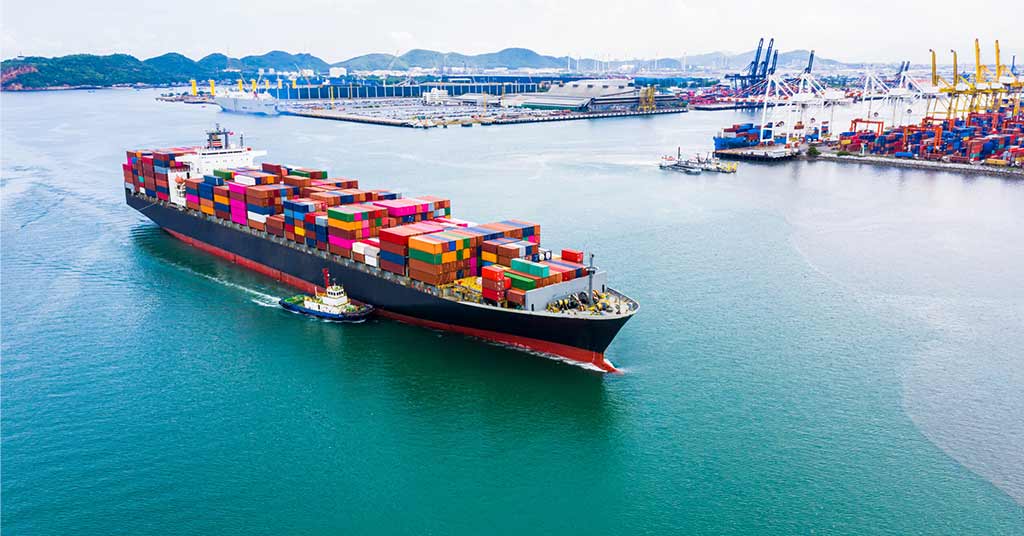Welcome To ChemAnalyst

United States: Russia and Ukraine have agreed to continue their commercial supplies of food and fertilizers, with Russia pledging to inform the United Nations in case of any potential impediments to such exports. The Black Sea Grain Initiative was brokered by the UN and Turkey in July 2022 to help alleviate the global food crisis exacerbated by Russia's invasion of Ukraine and blockade of Ukrainian Black Sea ports. China has been the leading importer of agricultural products from Ukraine under this initiative, with over seven million metric tons imported as of May 10, 2023. However, since the start of the Russian invasion in February 2022, exports of grain from Ukraine have been severely disrupted, with Russian military ships blocking Ukrainian ports in the Black Sea for over four months.
The Black Sea Grain Initiative is a collaboration focused on exporting grains like Wheat, Corn and other foodstuffs, and fertilizers, including Ammonia, from Ukraine. The Initiative has facilitated large volumes of commercial grain exports from three key Ukrainian ports in the Black Sea – Odesa, Chornomorsk, Yuzhny/Pivdennyi – to global markets. The Joint Coordination Centre responsible for the Initiative is hosted in Istanbul and includes representatives from Russia, Türkiye, Ukraine, and the United Nations, with the UN also serving as the Secretariat for the Centre. Cargo ships carrying Ukrainian goods are guided by Ukrainian vessels into safe international waters of the Black Sea, avoiding areas with mines. It has already safely moved nearly 30 million metric tons of Ukrainian agricultural exports via the Black Sea. Recently, Russia agreed to extend the deal that allows Ukraine to ship grain through the Black Sea to parts of the world struggling with hunger, providing a significant boost to global food security after the more-than-year-old war drove up prices.
Martin Griffiths, the United Nations' aid coordinator, has been actively involved in brokering and coordinating the Black Sea Grain Initiative between Ukraine, Russia, Turkey, and the United Nations. The Initiative was established in July 2022 to facilitate the safe transportation of grains, foodstuffs, and fertilizers via a maritime humanitarian corridor from Ukrainian ports in the Black Sea. Griffiths has been instrumental in ensuring the implementation of the initiative and has advocated for its extension to continue promoting global food security. Under the Black Sea Grain Initiative, Ukraine has successfully exported over 30 million metric tons of cargo through its ports, which had been stalled due to Russia's invasion. Despite reservations expressed by Moscow, Griffiths has remained hopeful for breakthroughs in negotiations and has continued to call for the extension of the initiative to benefit those in need of food supplies.
The Black Sea Grain Initiative, a joint effort between Ukraine, Russia, Turkey, and the United Nations to ensure the safe transportation of grains, foodstuffs, and fertilizers through Ukrainian ports in the Black Sea, has been the subject of recent talks. While the Russian government has not yet confirmed whether it intends to extend the deal, UN officials remain hopeful and are actively working to promote its continuation. Martin Griffiths, the UN's aid coordinator, has been leading these efforts and plans to meet with parties involved in Istanbul next week. Meanwhile, Rebeca Grynspan, a senior UN trade official, is working to ease Russia's exports of food and fertilizers and hopes to visit Moscow before July 17th. The Black Sea deal and Russia's export agreement are considered as a single package by the Russian government, and Griffiths has suggested that any cooperation on Russian exports with Western countries may dwindle if the Black Sea deal is not extended. Despite the challenges, UN officials remain committed to promoting global food security and ensuring the safe transport of goods through the humanitarian corridor.
The Tolyatti-Odesa Ammonia pipeline, which is a crucial transport route for Ammonia fertilizer from Russia via Ukraine, was recently damaged in the ongoing conflict between the two nations. Russia has blamed Ukraine for the damage and says it may have a negative impact on their efforts to renew a landmark grain deal. Ukrainian sabotage and reconnaissance group blew up the Tolyatti-Odessa ammonia pipeline near the village of Masyutovka in Ukraine" can be rewritten as "An explosion occurred at the Tolyatti-Odessa ammonia pipeline near Masyutovka village in Ukraine, which is believed to be caused by a Ukrainian sabotage and reconnaissance group.
The damage to the pipeline will be considered in further talks about the Black Sea Grain Initiative, and UN officials have been actively working to promote the safe transport of goods through the humanitarian corridor to ensure global food security.
In a recent statement, U.N. Secretary-General Antonio Guterres emphasized the crucial role played by the agreements that enable the safe export of food and fertilizer from Ukrainian ports in the Black Sea, as well as facilitate Russia's own exports. Guterres described these deals as indispensable in ensuring global food security.
We use cookies to deliver the best possible experience on our website. To learn more, visit our Privacy Policy. By continuing to use this site or by closing this box, you consent to our use of cookies. More info.
